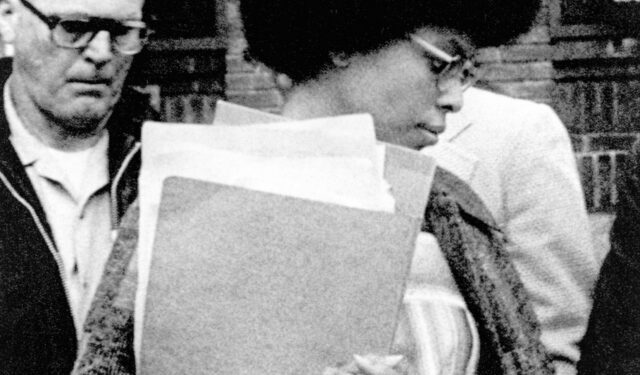Assata Shakur, the fugitive convicted of murdering a New Jersey state trooper before escaping prison and receiving political asylum in communist Cuba, has died at the age of 77. Born Joanne Deborah Chesimard, she became one of the most infamous symbols of armed militancy in America’s turbulent 1970s—a time when radicals sought to undermine the rule of law under the banner of “revolution.”
According to Cuba’s Ministry of Foreign Affairs, Shakur passed away Thursday in Havana due to “health conditions and advanced age.” Her daughter, Kakuya Shakur, confirmed the news in a Facebook post.
Her story has long been a thorn in U.S.-Cuba relations. Successive American administrations, including President Donald Trump’s, demanded her return to face justice. The FBI listed her among its “most wanted terrorists,” underscoring how seriously the United States viewed her crimes.
Shakur’s violent path began in earnest on May 2, 1973, when she and two members of the Black Liberation Army engaged in a gunfight with New Jersey State Police during a highway stop. Trooper Werner Foerster was killed, another officer wounded, and one of Shakur’s companions died in the exchange. Already wanted on several felony charges, including armed robbery, Shakur fled but was captured and convicted of murder and related crimes in 1977. She was sentenced to life in prison.
Two years later, however, she escaped with the help of armed radicals who stormed Clinton Correctional Facility, held guards hostage, and commandeered a prison van. By 1984, she resurfaced in Havana, where Fidel Castro’s regime embraced her as a revolutionary and granted asylum. Cuba’s support for Shakur was part of a broader strategy: positioning itself as a sanctuary for leftist militants and a hub of anti-American agitation. Just as Havana backed Marxist movements abroad, it welcomed Shakur as a domestic “freedom fighter” against capitalism and the American state.
Shakur, for her part, denied culpability in Foerster’s murder, claiming in her 1988 autobiography Assata that she had her hands in the air when shots were fired. Yet her rhetoric revealed not contrition, but ideological commitment. “It is our duty to fight for our freedom. It is our duty to win,” she wrote. “We must love each other and support each other. We have nothing to lose but our chains.” Her words echoed Marxist slogans and were later echoed by activists in the Black Lives Matter movement, who treated her as a martyr rather than a convicted killer.
Black Lives Matter Grassroots Inc. released a statement after her death on Instagram, saying, “May her courage, wisdom, and deep, abiding love permeate through every dimension and guide us. May our work be righteous and brave as we fight in her honor and memory.”
This glorification of Shakur illustrates how deeply her influence has seeped into modern activist circles. What some call “courage” was, in reality, violence against police officers and defiance of the justice system. Yet for radical groups, her story has become a rallying cry, a justification for challenging law enforcement and dismantling traditional structures of order.
Her reach extended into pop culture as well. Hip-hop artists referenced her life and ideology, from Public Enemy’s 1988 track “Rebel Without a Pause” to Common’s 2000 song “A Song for Assata.” The latter performance drew controversy in 2011 when Common was invited to the White House by the Obama administration, sparking outrage from police groups who viewed it as an insult to Trooper Foerster’s family and law enforcement at large.
Her notoriety also carried through her personal ties—she was a close figure in the family of rapper Tupac Shakur, who considered her a godmother. That connection further cemented her symbolic role in a cultural movement that often framed law enforcement as the enemy and radical resistance as “justice.”
Even as late as 2022, her legacy cast shadows. Sundiata Acoli, her accomplice in Foerster’s killing, was granted parole after decades behind bars. His release revived painful memories for the families of victims and reminded the nation how lenient narratives about “rehabilitation” can sometimes obscure the severity of past crimes.
Now, with Shakur’s death in Havana, a long and controversial chapter closes. But the lessons remain. When convicted murderers are celebrated as heroes, when foreign regimes shelter fugitives to spite America, and when their writings are elevated as wisdom rather than propaganda, the rule of law is undermined. Assata Shakur did not merely escape prison; she became part of a larger ideological battle that continues to shape debates about justice, authority, and America’s future. Her passing may end her life, but the distortions of her legacy still echo loudly today.




















